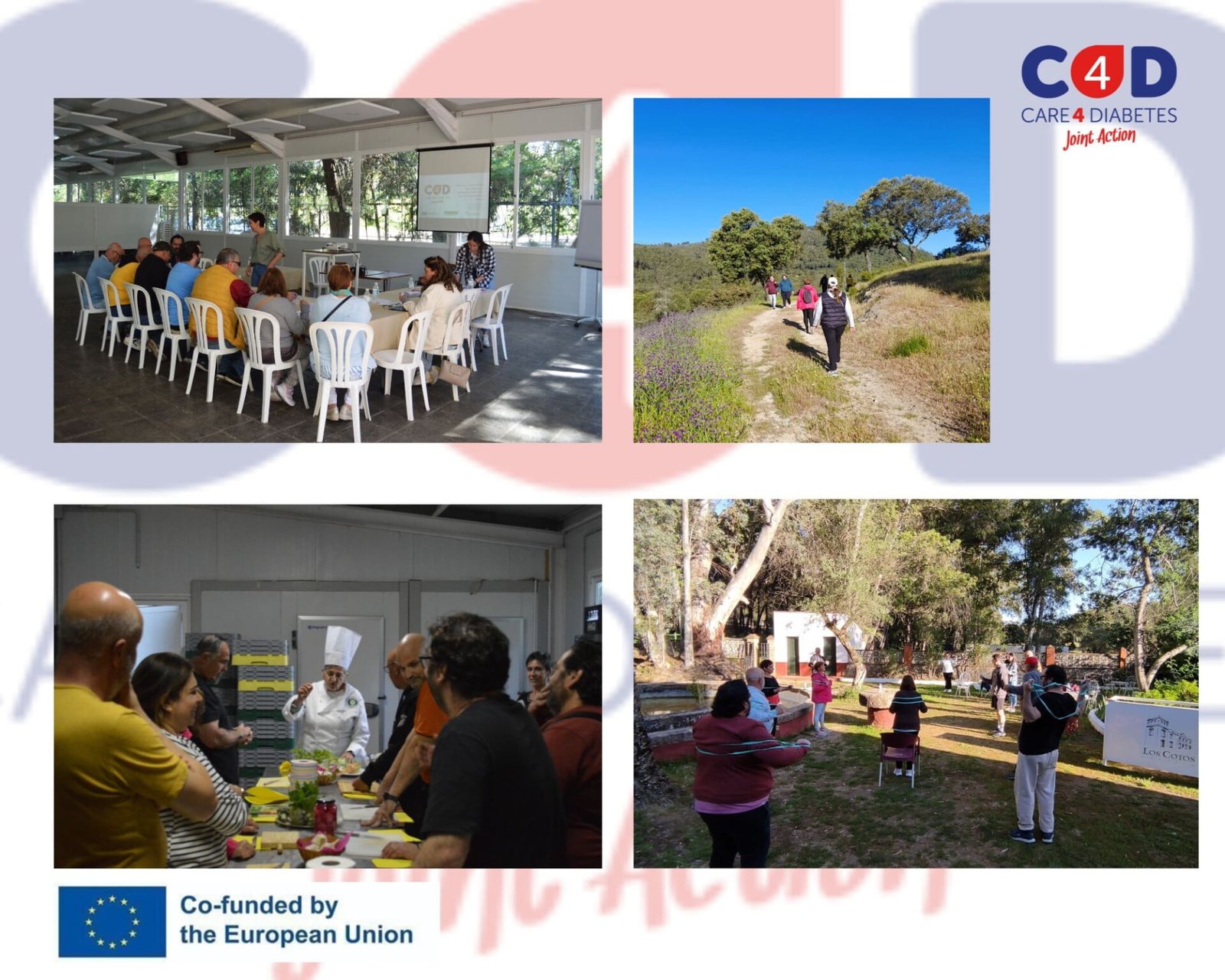Non-communicable diseases (NCDs) such as cardiovascular diseases, diabetes, chronic respiratory diseases, mental disorders, neurological disorders, or cancer are responsible for 80% of the disease burden in the EU countries and the leading causes of avoidable premature deaths.
Type 2 diabetes is the most common form accounting for 90% of all cases of diabetes. The overall risk of dying among people with type 2 diabetes is at least, double the risk of their healthy peers.
Reducing the burden of NCDs requires a holistic approach and in the case of type 2 diabetes a cornerstone for effective control is a healthy lifestyle.
FundeSalud (The Foundation for Training and Research of Health Professionals of Extremadura) is participating in the CARE4DIABETES Joint Action whose CARE4DIABETES brings together 12 partners, 17 affiliated entities, 1 associated partner from 12 countries with the common goal of improving and fostering health in the EU Member States by reducing the burden of type 2 diabetes and related risk factors, both at societal and personal level, through effective lifestyle treatment and training programmes.
The 23rd and 24th April, the intervention began with the first group of patients in Extremadura. This intervention is based on the adaptation and transfer of the best practice “Reverse Diabetes2 Now” to the context of the region. The basis behind this programme lies in the implementation of effective lifestyle treatment and training programmes, which can bring improved quality of life in people with type 2 diabetes and healthier blood glucose levels with potential lower medication consumption.
Healthy lifestyle changes related to nutrition, physical activity, relaxation and good rest have been put into practice during these starting two days. For 12 months, participants will be involved in the pilot phase of the project and will receive follow-up from their medical professionals and a multidisciplinary team consisting of a physician, nutritionist, physical activity monitor, and psychologist.
Read more about the project meeting here.

